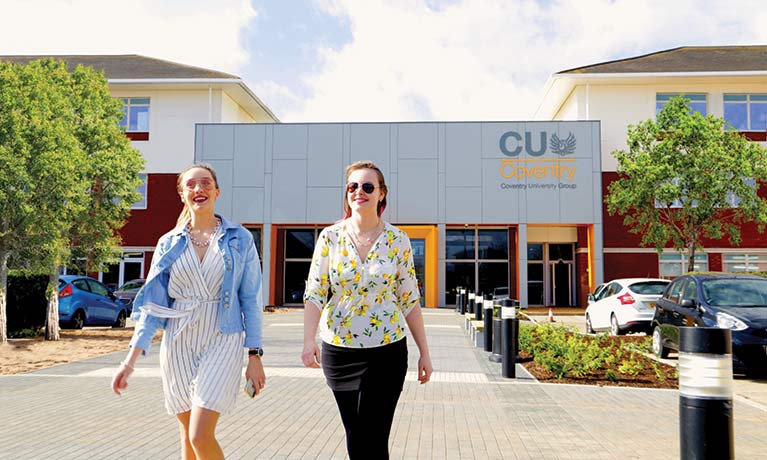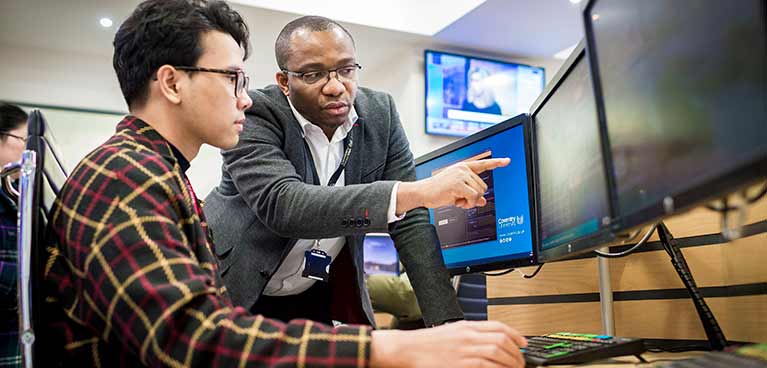Search
Accounting and Finance BSc (Hons) with foundation year
Study level: Undergraduate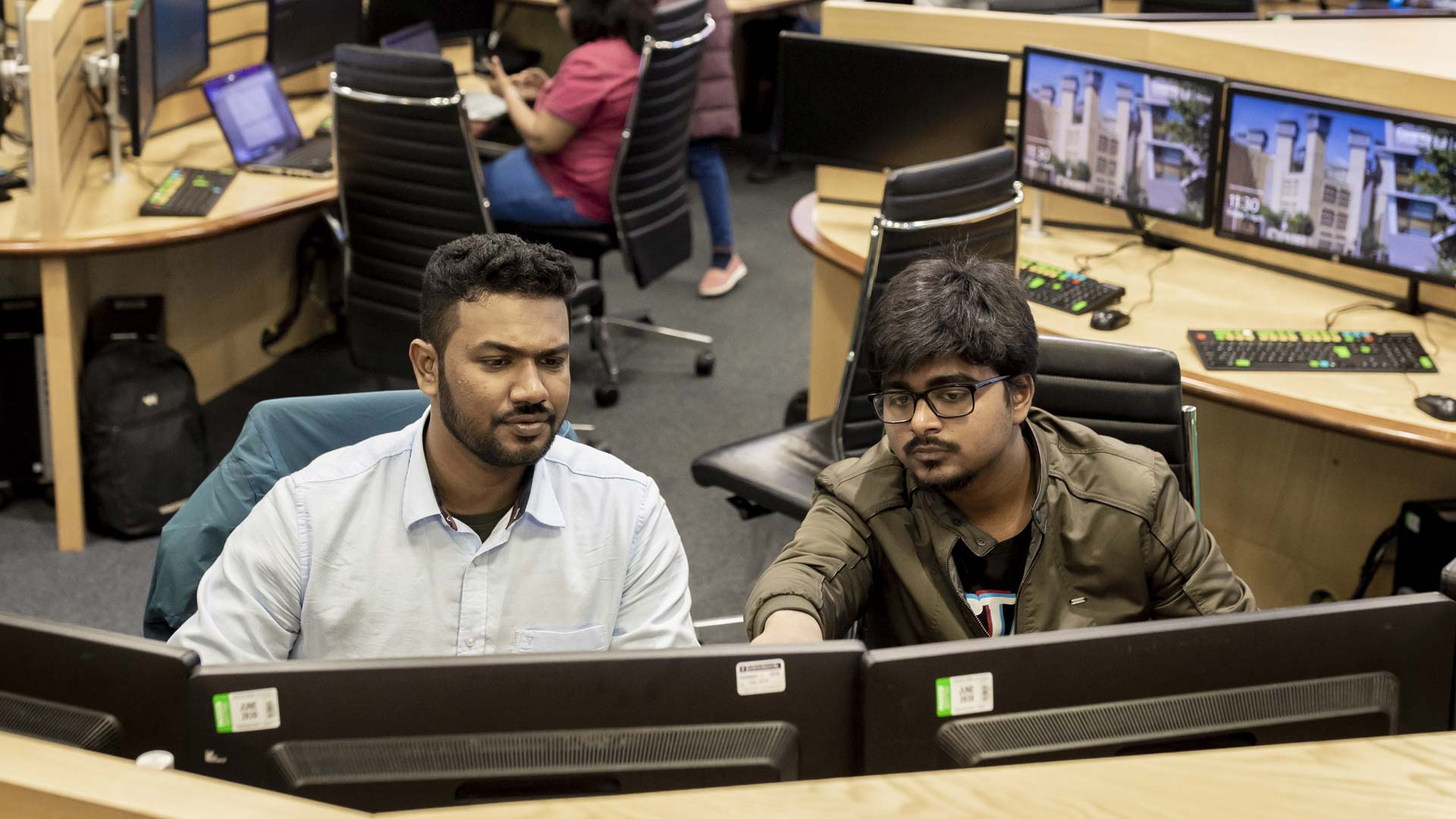
This course offers you the chance to gain a solid foundation in a broad range of potential career options within finance, accountancy or general management.
Course option
Year of entry
Location
CU Coventry (Coventry) and
Coventry University (Coventry)
Study mode
Full-time
Sandwich
Duration
4 years full-time
5 years sandwich
UCAS codes
NNDF
Start date
September 2025
November 2025
The information on this page is for 2024-25 entry and should be used as guidance for 2025-26 entry. Please keep checking back on this course page to see our latest updates.
Course overview
Our degree with foundation year could be the stepping stone you need to achieve your goals. The foundation year aims to prepare you for degree-level study and is a great way to build the confidence, skills and knowledge needed to succeed on your degree course.
Foundation year
This year aims to provide the fundamental knowledge and skillset in a range of mathematical and business principles, as well as the theories and concepts involved in investment risk and professional ethics.
Degree
Sound financial knowledge and accountancy skills are needed so businesses can make the right decisions, develop the right strategies and achieve growth, while also considering issues of ethics and sustainability. Many management roles require an understanding of budgeting and financial administration, to ensure the business remains on track and meets its targets.
Joint Top Modern University for Career Prospects
Guardian University Guide 2021 and 20225 QS Stars for Teaching and Facilities
QS Stars University RatingsTop 5 UK Student City (Coventry)
QS Best Student Cities Index 2023Why you should study this course
By studying this course, you will have the opportunity to:
Foundation year
- Supports you to gain the academic skills required for degree-level study.
- Provides a grounding in key areas of accounting and finance.
Degree
- Tailor your study to your chosen career path
This course allows you to broaden your knowledge and skills or focus on specialisation as you see fit. You will first study a wide range of subjects laying a solid foundation for a career in accounting, finance or financial management. In the final year, you will have the opportunity to select from a range of optional modules to focus on a particular area of interest. - Prepare for professional qualifications2
Our degree is closely aligned to the syllabi of professional accountancy bodies including the Association of Chartered Certified Accountants (ACCA), Chartered Institute of Management Accountants (CIMA) and Institute of Chartered Accountants in England and Wales (ICAEW). - Put your skills to the test
Prepare and analyse financial statements, as well as studying the impact of finance on real businesses through case studies of a diverse range of organisations. - Develop practical skills in our Bloomberg Trading Floor4
Develop your skills in our Trading Floor4, which is currently one of the largest academic trading floors in Europe, featuring contemporary Bloomberg terminals. - Benefit from real-world exposure
Prepare for a future career in accounting and finance with a work placement2. Past students have undertaken placements with L'Oreal, Vauxhall Motors, and Digitus Accountancy Limited.
Accreditation and professional recognition
The degree is accredited1 and recognised by the following bodies:
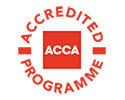
Association of Chartered Certified Accountants (ACCA)
This course is accredited by the Association of Chartered Certified Accountants (ACCA) for the 2023/24 intake. Upon successful completion of the course you will be able to secure certain exemptions from ACCA papers, depending on your choice of modules. Please note that additional papers will be required to be taken to become /qualified through the ACCA, which will incur additional costs, and you will also need to fulfil the practical experience requirement. Qualifying will be subject to competitive application, availability, and meeting any applicable visa requirements.
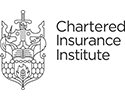
Chartered Insurance Institute
This course is recognised by the Chartered Insurance Institute (CII) for the 2024/25/26 intakes. CII recognition allows students to gain certain exemptions from some professional examinations, upon successful completion of this course (subject to application, availability, meeting applicable visa requirements and additional fees may apply). If there is any change to the recognition of this course by the CII, we would seek to notify applicants and students as soon as possible.
International Audit Week
International Audit Week is usually held annually, and is dedicated to helping students develop their auditing skills, with a view to successful careers in the audit and accounting sectors.
What you'll study
We regularly review our course content, to make it relevant and current for the benefit of our students. For these reasons, course modules may be updated.
The Accounting and Finance BSc at Coventry University provided me with a rigorous and comprehensive platform for building my accounting and finance knowledge. The Bloomberg Trading floor and huge amount of online academic resources are a great help.
Yilong Chen, Accounting and Finance BSc (2021)
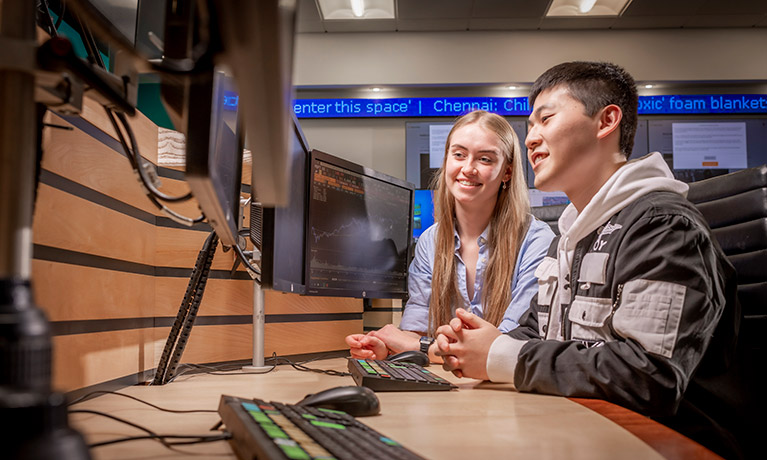
How you'll learn
My absolute passion is making the complex issues of accounting and finance easily understandable to students. I am a Certified Public Accountant (CPA), with over 15 years of teaching and research experience at various universities in three different countries.; I love bringing that experience to my teaching and inspiring learners to think about the possibilities that studying this course can potentially open up.
Dr Hafij Ullah, Assistant Professor in Accounting 2022

Entry requirements
Typical offer for 2024/25 entry.
Got higher grades? Have you considered direct entry to the degree without foundation year?
Fees and funding
Foundation year
| Student | Full-time | Part-time |
|---|---|---|
| UK, Ireland*, Channel Islands or Isle of Man | 2025/26 fees TBC 2024/25 fees - £7,950 |
Not available |
| International/EU | Not currently available*** | Not available |
Degree
| Student | Full-time | Part-time |
|---|---|---|
| UK, Ireland*, Channel Islands or Isle of Man | 2025/26 fees TBC 2024/25 fees - £9,250 per year |
Not available |
| International/EU | Not currently available*** | Not available |
Please note: UK (home) tuition fees for the degree course years will be charged at the current Coventry University UK (home) degree fee level. This was set at £9,250 for the 24/25 academic year.
If you choose to do a work placement2, you should consider travel and living costs to cover this. There is also a tuition fee3 of £1,250 that will cover your academic support throughout your placement year.
For advice and guidance on tuition fees and student loans visit our Undergraduate Finance page and see The University’s Tuition Fee and Refund Terms and Conditions.
Tuition fees cover the cost of your teaching, assessments, facilities and support services. There may be additional costs not covered by this fee such as accommodation and living costs, recommended reading books, stationery, printing and re-assessments should you need them. Find out what's included in your tuition costs.
The following are additional costs not included in the tuition fees:
- Any optional overseas field trips or visits: £400+ per trip.
- Any costs associated with securing, attending or completing a placement (whether in the UK or abroad).
*Irish student fees
The rights of Irish residents to study in the UK are preserved under the Common Travel Area arrangement. If you are an Irish student and meet the residency criteria, you can study in England, pay the same level of tuition fees as English students and utilise the Tuition Fee Loan.
**This course with foundation year is not currently available to international students. If you do not meet the entry requirements to directly join year 1 of the degree, please take a look at our International Pathways Programme for additional options.
Facilities
Our foundation years are taught at CU Coventry’s Mile Lane building, a short walk from the city centre. You’re part of the university from day one, so during your foundation year you’ll have access to the wider facilities at Coventry University. Once you successfully complete your foundation year, you'll transfer over to studying your chosen degree at Coventry University, where you'll be taught on campus in the relevant academic buildings.
Careers and opportunities
Upon successful completion, you will be able to:
- Explore and evaluate the complex and dynamic global business environment in which accounting and finance operate including awareness of interdependencies between the regulatory, legal, ethical and economic frameworks.
- Identify, extract and interpret data from a variety of financial and other numerical sources using appropriate financial analysis techniques and an appreciation of statistical concepts.
- Record and summarise transactions and other global economic events, prepare financial statements in compliance with relevant regulatory requirements and demonstrate awareness of the contexts in which accounting data and information is processed and used, by different stakeholder groups.
- Demonstrate an understanding of the financial needs of business entities, an appreciation of how theory and evidence may be used to guide practice, the workings of capital markets, and the relationships between risk and return.
- Critically evaluate a range of contemporary theories, models and concepts in accounting and finance, and synthesise these to devise optimal investment and financial risk management strategies for entities including managing investment portfolios and currency risk.
- Apply critical, analytical and problem-solving skills, including critical analysis and evaluation of data, drawing reasoned conclusions to formulate effective strategies for individuals or organisations.
- Use digital information and communications technology4 for the acquisition, analysis and communication of information.
- Effectively communicate and present quantitative and qualitative information, analysis and findings in a form appropriate to the intended audience.
- Evidence effective critical self-reflection, ethical awareness, intercultural awareness and well-developed interpersonal skills including numeracy, collaborative problem-solving and effective time management.
Designed to prepare you for a successful career in finance, accounting or management, this course aims to offer you opportunities to gain industry experience, such as field trips, live cases with clients, business simulations and work experience2.
You should have the confidence to give sound financial advice and make effective financial decisions. You should be well placed to pursue a wide variety of potential future careers options in areas such as:
- Finance
- Management
- Accounting
- Banking
- Personal and corporate finance
- Business
- Education in private, public and third sector organisations.
Alternatively, this course could set you on the path towards further study for a professional qualification as a Chartered Accountant.
Where our graduates work
In the past graduates have gone on to work for companies spanning a range of sectors such as BDO, Britvic, Meggit, ICON plc, and The Wigley Group.
Typical roles that graduates of this course may progress to include Finance Analyst, Account Technician, Audit Graduate Scheme, and Finance Graduate Scheme.
Further study
Upon successful completion of our Accounting and Finance BSc (Hons) course, you may wish to continue to further your studies at postgraduate level with our Finance MSc here at Coventry Business School.
You can explore all of your options using our postgraduate course search tool.
You may be entitled to an alumni discount on your fees if you decide to extend your time with us by progressing from undergraduate to postgraduate study.
Please note that further study opportunities2 are subject to competitive application, availability, meeting any applicable visa requirements and additional costs may apply.
Accountancy at Coventry
Student Caleb Mellen talks about the skills and experience he’s learning on his 3rd year work placement.
How to apply
You may also like

Accountancy BSc (Hons)
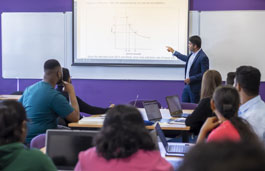
Business Economics BSc (Hons)

